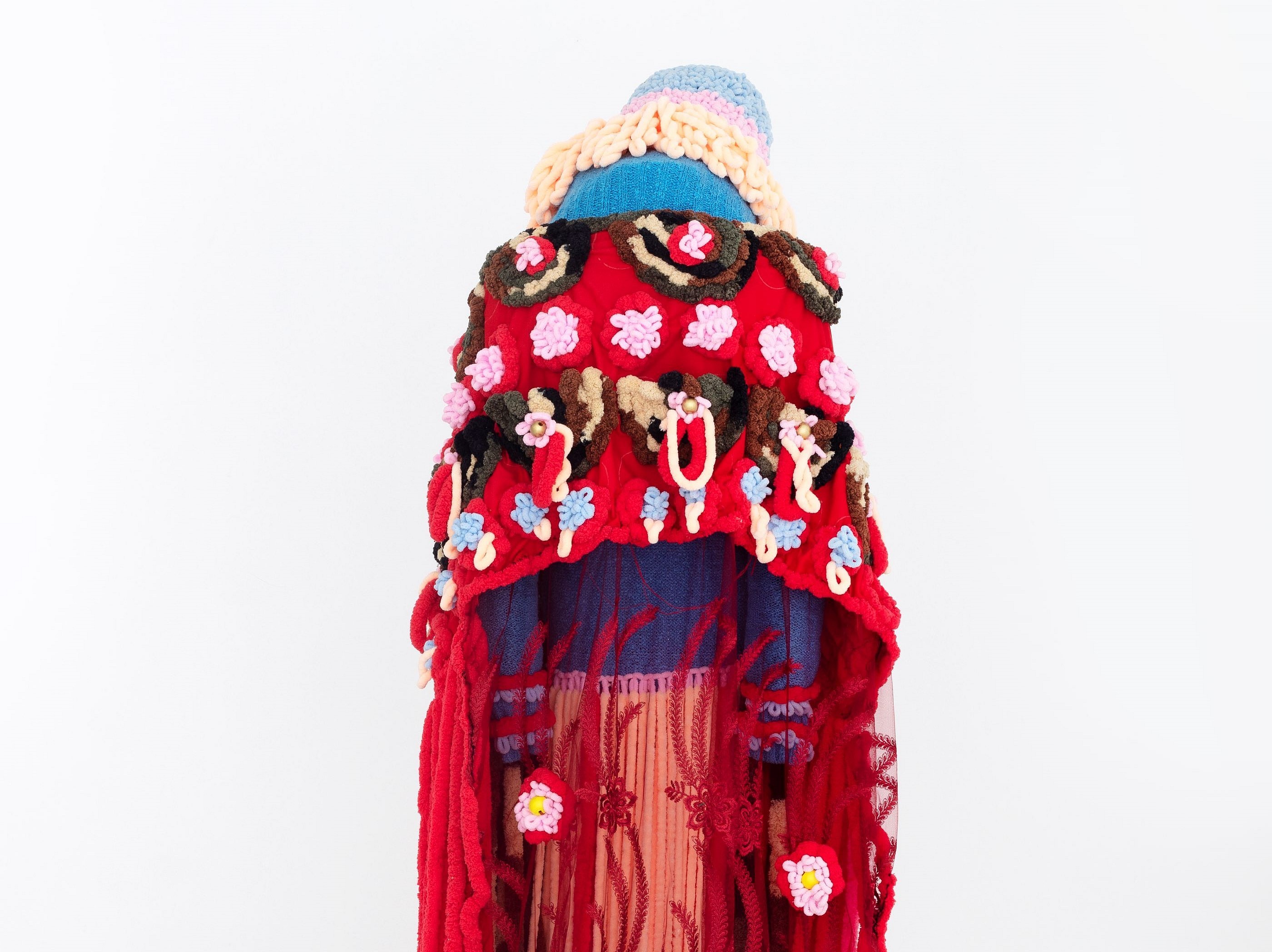PRESS RELEASE

TERESA KUTALA FIRMINO - Olondavi Viotembo (The Keepers of Time)
Aug 7 – Sep 21, 2024
Rosemary for mental clarity, turmeric for glowing skin and cinnamon to stoke the fires of lust. Taking herbal tinctures for vitality is an age-old practice, and one, no less popular in a world of TikTok health gurus and wellness empires. The knowledge of these herbs, and other ways to help and comfort the sick, have been disseminated amongst the women in Teresa Kutala Firmino’s family for decades. “My mother has healing hands, it’s just an inherent ability”, the acclaimed artist says, by way of illustration, on a topic that is the fulcrum of her latest body of work.
Through a combination of paintings, soft sculptures, video installation and performance pieces, Firmino is engaging with this deeply personal yet completely relatable and universal idea. As she puts it, “I'm looking at the knowledge systems that my grandmother, my mother, aunts and their ancestors have passed on from generation to the generation. I’m not just talking about them relaying history or stories - I’m addressing the passing down of everyday information”. In this case, she is speaking specifically of their herbal know-how and therapeutic prowess.
Her new soft sculptures exemplify this. Called, “the ones that came before us”, these four regal and engaging works were made by Firmino using a mix of yarn, found and made objects and swathes of fabrics. They are respectively named the dreamer, the healer, the nurturer and the mediator, and collectively form a group of silent goddess-like figures. Are they watching over the exhibition? Could they help the viewer, if need be?
Firmino’s interrogation of both the minutia of life and the roles women play is unsurprising. In her practice, she has repeatedly examined the life experiences of her female relations, in both Angola and South Africa, as a way of engaging with more universal issues. These range from the multigenerational traumas of colonialism and civil war so prevalent in African communities to the complicated, but often intersectional relationship between Christianity and traditional African spirituality.
Of the latter topic she says, “if someone has a spiritual problem or needs a certain health issue taken care of, the community call on is the woman in my family. But then they're almost demonized for having those knowledge systems as well. They're needed in society, but they're also seen as witches of sorts – because, of course, that’s a real western take on their ‘alterative healing methods’”. In her art, Firmino’s thoughts on her grandmother, mother and her extended group of females kin, manifest as tender but complex. Her sense of love and appreciation for them and the importance of community and spaces for women are woven through her pieces, but she does shy away from the hard questions. For Firmino this is where the personal meets political, cultural and spiritual. This is the intertwining and clash of facets of identity that come with being a black woman in South Africa.
For further enquiries please contact gallery@everard.co.za



